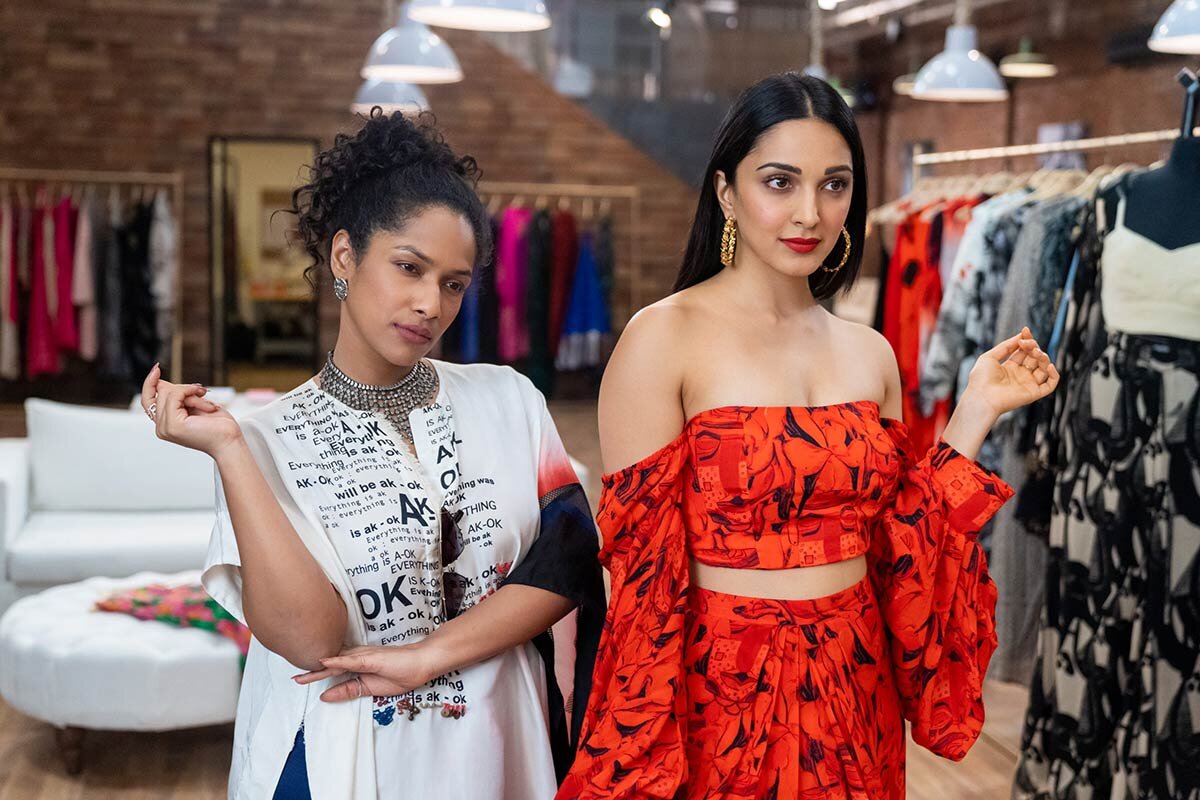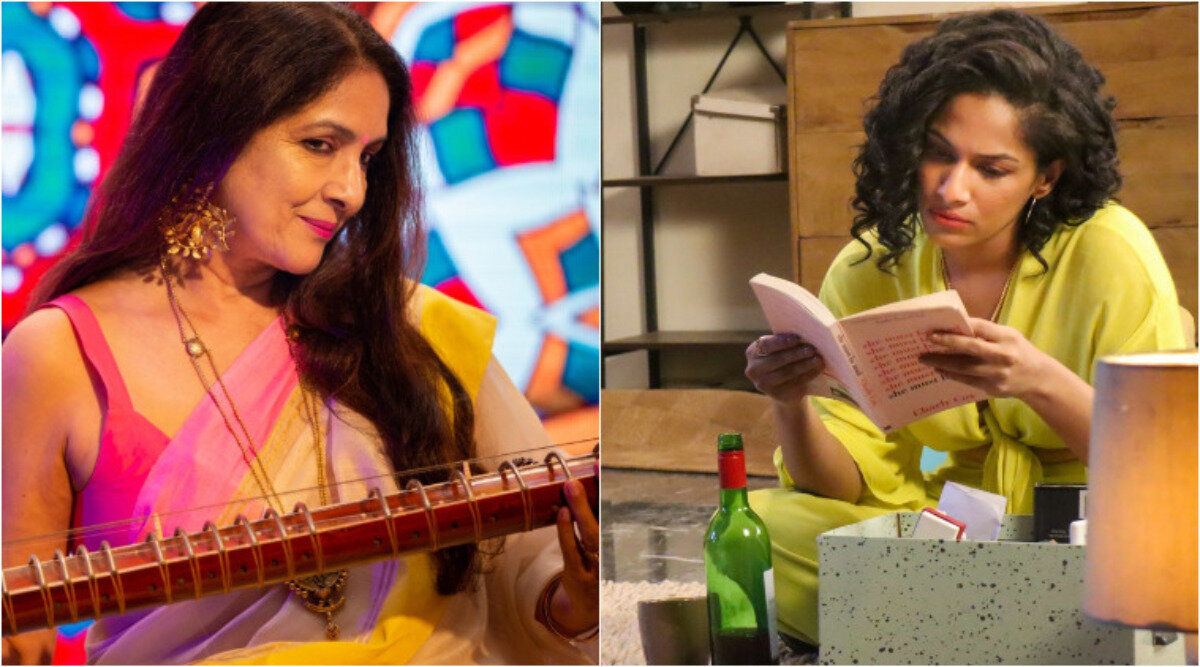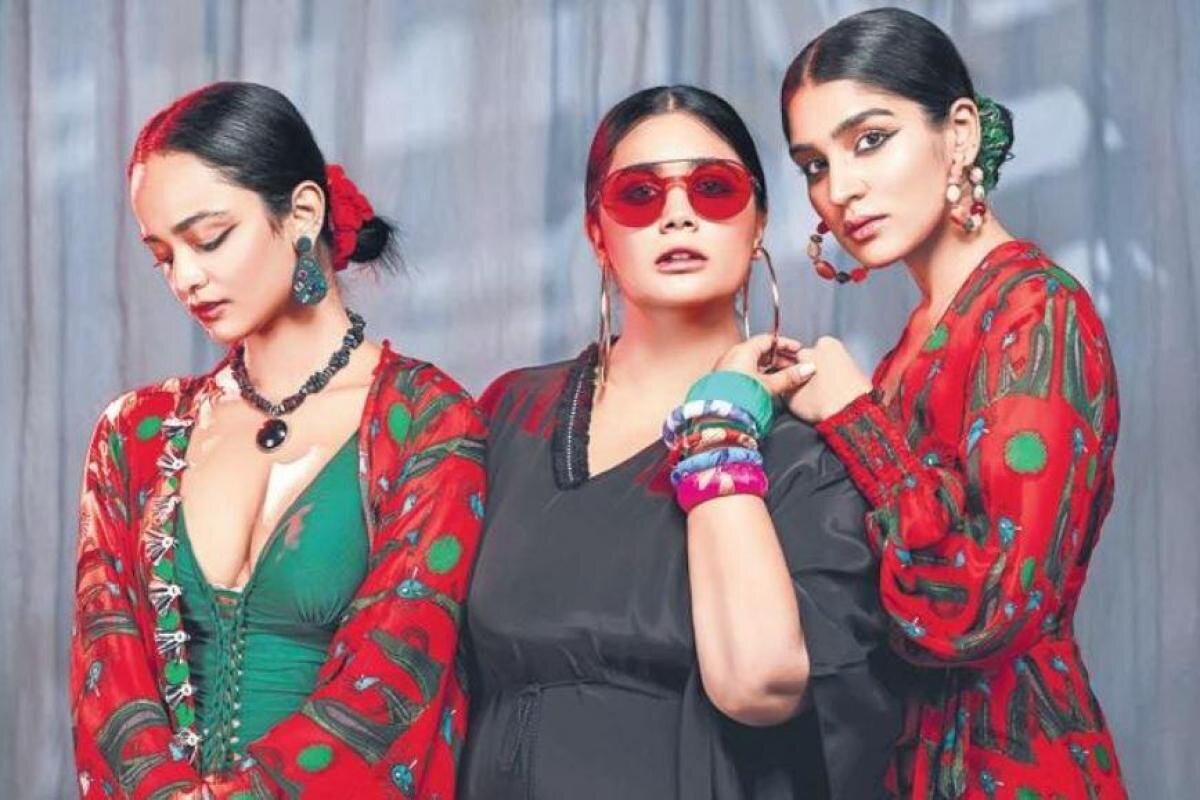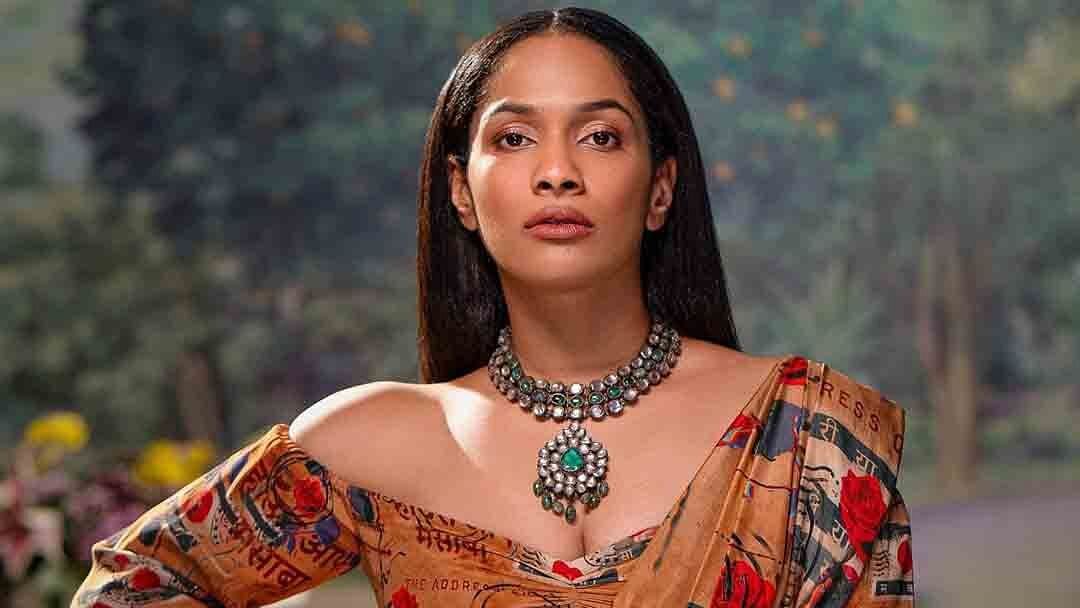Fashion Designer Masaba Gupta’s Netflix Show Tackles Conservative Indian Values
Source: IMDb
Masaba Gupta announced her debut acting role alongside her famous mother, Neena Gupta, in a scripted Netflix show loosely based around their life. The two played themselves, and everyone dismissed the show immediately, claiming that her mother is why the media giant green-lit her show. Since the recent mysterious and high profile suicide of budding actor Sushant Singh Rajput, there has been a mass resurgence in the nepotism debate against the powers at play in Bollywood. But once the series officially dropped, there was nothing left to say but praise for Masaba’s show—and rightly so.
Netflix describes the six half-hour episodes of “Masaba Masaba” as a look into two complex lives, stating: “Real life mom-daughter duo Neena and Masaba Gupta play versions of themselves in this playful, fictional peek into their lives in fashion and film.” But the Hindi spoken show takes on a deeper meaning beyond its advertised statement.
The show is saturated with hilarious one-liners and quirky dialogue scenes such as: “I’m not going on any more dates. I rather go to a funeral.” “Was the sex good at least?” “What sex? Have sex with him? I just left him at the restaurant.”
Aside from the comedy aspect, the characters and their portrayal is what truly makes the show formidable.
Source: Rediff
Masaba Gupta and cameo appearance by Kiara Advani
India’s more conservative values and views still linger into modern times. The LGBTQ+ community quietly hides their identities within their circles, divorce is considered a somewhat taboo topic, and women are still not treated as equals. Ageism is prominent in Bollywood; older actors will star alongside actresses 20-30 years younger, but not with female actresses. “Masaba Masaba” addresses all of these topics in a meaningful way that brings these subjects quite literally home. The show indicates that times are slowly changing. Even Neena apologized to her daughter for preventing the naturally gifted fashion designer, now actor, from giving acting a shot when she was younger for fear of being stereotyped as a typecast.
The representation in the show is strikingly different than any Bollywood movie or show. Masaba Gupta is biracial; her mother is Indian, and her father, Viv Richards, is a Black Antiguan cricket player. Her parents were never married. Many of the other characters are of groups underrepresented in Bollywood. Neena Gupta, playing herself, is well into her 60’s; Rytasha Rathore playing the best friend, Gia, is plus-size; Smaran Sahu playing the love interest/artist collaborator, Jogi, is bisexual; and Nayan Shukla playing the House of Masaba’s personal assistant, Gehna, is a lesbian.
Source: Mirchi Play
Cast of “Masaba Masaba”
Right off the bat in episode one, Masaba Gupta is seen disheveled and frantically walking in a red evening gown in the middle of the night in the streets of Mumbai. 24 hours previously, a newspaper published a blind item hinting that Masaba and her musical husband Vinay rumored to be getting a divorce. Like most mothers, Neena Gupta gets wind of the gossip piece and gets worried. Inundated with WhatsApp messages, her mother’s constant calls, assistants lurking for drama, and actresses insisting that they are there for her, Masaba ignores everyone to avoid dealing with this problem.
In the midst is a scene that seems like a filler, but it holds much more weight. Neena is seen taking driving lessons and her younger male instructor asks why she doesn’t get a driver at her age. But Neena insists, “I plan to do all the stuff I couldn’t do until now. I’ll learn how to swim; I’ll get a tattoo; I’ll learn how to drive; and I’ll play the lead role in a film.” It was truly a powerful moment.
Source: Indian Express
Neena Gupta and Masaba Gupta
In the end, despite announcing to the press that they are still together, Masaba realizes that putting up a show for the Bollywood crowd isn’t going to cut it. Indians love to sweep everything under the rug. So Vinay and Masaba civilly put together a divorce Instagram post in the car ride home to stop the circulating gossiping in an empowering moment of self-reflection. The episode circles back to the beginning scene of Masaba walking down the street, where this time she ends up at her mother’s house.
The show goes on to detail several mishaps in the “glamorous” world of fashion and film. Masaba has a disastrous fashion show. Eponymously called “Hot Mess” loaded with financial fashion brand troubles, getting back into dating post-divorce, and finding a place to call her own as a newly single woman in Mumbai are just some of the adventures the rest of the five episodes entail. In detailing a large number of failures, the show breathes strength and humility in taking the messes that come with life in stride. Best of all, an adorable mini-Masaba comes out and we all can relate to wanting to feel like a kid again.
Source: New Indian Express
House of Masaba “Hot Mess“ Spring/Summer 2020 Collection
By the end of the show, we all want to be Neena Gupta. Back in the ‘80s the actress single-handedly raised a mixed-race daughter from a man she refused to marry. Three years ago, she famously penned an Instagram post saying, “I live in Mumbai and working am a good actor looking [for] good parts to play,” which was also portrayed in the show. Neena is a boss, funny, and unapologetically herself.
What is striking about the show is the difference in pace, tone, and development of themes that it brings to Bollywood and the 190 countries of Netflix’s global audience. While “Masaba Masaba” illustrates that diversity is a normality fact of life, the same cannot be said for other projects currently being produced. Bollywood’s love affair with colorism runs deep. A recently released song titled “Beyonce Sharma Jayegi” from an upcoming movie sings Oh Tujhe dekh ke goriya, Beyonce Sharma jayegi which translates to Beyonce will feel insecure after seeing you, fair-skinned lady.
In light of recent debates against the colorist, sexists, and racist society that most accept, many younger Indians were outraged that the song was conceived and approved. Ironically, the song released after Beyonce’s visual album film “Black Is King” premiered, which celebrates Black lives and Black culture. Bollywood and India still have a long way to go for “Masaba Masaba” is the exception, not the rule.
Source: National Herald India






